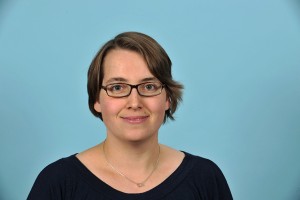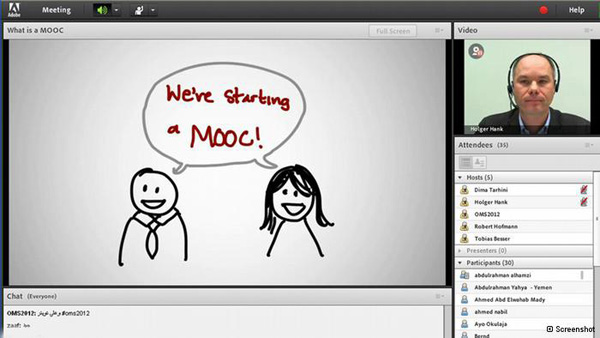Search Results for Tag: social media
Reaching African youth with educational radio
Guest commentary
Maja Braun, Coordinating Editor, Programs for Africa
 Along with providing global audiences with quality news and information, we think international broadcasters should also be responsible for education, especially on social issues and topics that are a part of what Deutsche Welle stands for, such as democracy, civil rights and intercultural dialogue. And that is why we are always looking for new, innovative ways to make education work in different regions around the world – like, for example, in Africa.
Along with providing global audiences with quality news and information, we think international broadcasters should also be responsible for education, especially on social issues and topics that are a part of what Deutsche Welle stands for, such as democracy, civil rights and intercultural dialogue. And that is why we are always looking for new, innovative ways to make education work in different regions around the world – like, for example, in Africa.
Unlike other regions around the globe that have seen FM, shortwave and AM lose tremendous amounts of users in the last 15 years, radio has remained very important to people in Africa looking for information. It’s a big part of the media landscape and continues to draw listeners week in and week out. We have also seen a huge boom in mobile usage – the number of subscribers has increased by at least 20 percent in each of the last five years.
When we first developed Learning by Ear in 2008, we wanted to give young Africans – even those who cannot read or access the Internet – the opportunity to get information on important issues that would improve their lives immediately and in the future. It was important for listeners to learn, but we also wanted to keep them entertained. That is why we mainly use radio dramas to deliver the message of topics that are not taught in school. Learning by Ear now plays a big role in the lives of many young people in Africa, offering radio dramas and feature stories on a variety of topics, ranging from political and societal issues to economic, health and environmental issues.
By working with mobile partners in Africa in the last few years, we have also been able to reach out to a new demographic and, hopefully, increase the level of social education among their customers. The unique, audio-based content is split up into individual series and segments – which makes it great for mobile consumption.
After five years and 42 different series with ten episodes each covering everything from health and hygiene to globalization, entrepreneurs and African success stories, we felt it was time for a change. We wanted to improve on the already successful format by providing a narrative that would help these young listeners in their daily lives; a story which accompanies them throughout the year instead of changing the scene every ten weeks.
With Crossroads Generation, we have created a Learning by Ear series which follows four characters as they confront challenges and learn from their mistakes. Listeners can get to know the characters better and will be more invested in what happens to them on the show. The episodes will deal with many issues simultaneously and the storyline will build on itself throughout the season.
The new format will also inspire young listeners to reflect on what they’ve heard and form their own opinions. One episode for example confronts teenage pregnancy and the actress decides to have an abortion. This decision is presented in a non-judgmental manner that allows for listeners to decide where they stand for themselves. There will also be a discussion platform available on Facebook where the audience can voice their ideas and opinions.
Other improvements include an online video-blog that will accompany every second episode and also adds a visual flavor to the series for the first time. The audience gets a look behind the scenes and insight into how the characters feel. The video-blog will be included on the website and Facebook page. Their will also be a Learning by Ear theme song featured in each of the program’s six languages.
We are hoping that with this new series, we will be able to win over even more listeners and give them insights into how to help shape their own lives to be successful.
‘The Bobs’ gets a facelift
DW’s blog and social media awards has relaunched its website with a new look and a new logo. The Bobs – Best of online activism – has been recognizing the best independent bloggers and citizen journalists since 2004 and is just one way that DW contributes to promoting freedom of expression and the upholding of human rights around the world. This year, the contest has added three additional languages – Hindi, Turkish and Ukrainian – opening the contest’s categories to a total of 14 languages.
Find out more at thebobs.com
Guido Baumhauer tackles ten questions with the EBU
Guido Baumhauer, DW’s Director of Distribution, recently took time for a Q&A with the EBU, covering everything from the future of media to the Hunger Games and Jane Fonda. One of his insights has to do with using social media outside of the office:
“It is redefining how we all receive and redistribute our information and how we communicate. As a communication platform and information channel, social media provides a great opportunity for people to find and share information and news from many reliable sources.
I love this new freedom of the former “recipient” – when something big happens, social media channels are often faster than traditional sources and I rely on my smartphone. But to be honest, I don’t need to share pictures of my dinner on Facebook and Twitter via Instagram – I concentrate on eating it instead.”
Read the whole interview here.
Social media efforts earn DW projects top awards
Earlier this month, the Facebook page of telenovela Jojo Sucht das Glück and multimedia project Destination Europe won top prizes in their respective genres. Jojo Sucht das Glück won a bronze E Learning Award in an international competition hosted by London-based Bizmedia. Destination Europe won an International Media Excellence Award (the AIBs) from the Association for International Broadcasting, also based in the UK.
The E Learning Awards are one of the most prestigious competitions in the industry. DW’s Esther Weingarten accepted the bronze for “Best use of social media for learning” in London.
The Facebook page for Jojo Sucht das Glück not only features supplementary info about weekly episodes. It is also a forum for fans to directly interact with the star of the show and practice their German. Users have even made fan videos about the telenovela and uploaded them to YouTube.
The AIBs honor excellence in international broadcasting, picking winners from entrants all over the world. DW’s Felix Steiner and Klaus Dahmann accepted the award for Destination Europe at a London ceremony.
The Association for International Broadcasting praised the project for its “first-rate multilingual, multi-platform approach, with extensive use of social media to provide real, relevant information to those seeking a better life in Europe.”
Open-access training for bloggers and journalists
DW Akademie is testing an innovative new training format for bloggers and journalists in North Africa based on the MOOC concept (massive open online course). The Open Media Summit (OMS) is an interactive online course combining e-learning and social media, which is an open-access, interactive, online platform where educational resources are distributed through live streaming, discussion forums and other online resources. The course is free and open to everyone. The only prerequisites are English and Arabic language skills and a computer or laptop with an Internet connection.
More than 300 citizen journalists from North Africa are testing the new learning format, which offers a virtual campus. Participants can meet in online classrooms, access training resources and take part in live stream sessions. The website shows how many people are online and the countries they’re from. This is part of the concept behind open exchange and interactive learning.
Upcoming topics on the course agenda include dealing responsibly with online sources, data-driven journalism and Internet censorship. A total of six live video sessions will feature guest experts from North Africa. The course is open to all those interested, and newcomers are welcome.











Feedback